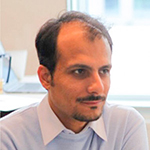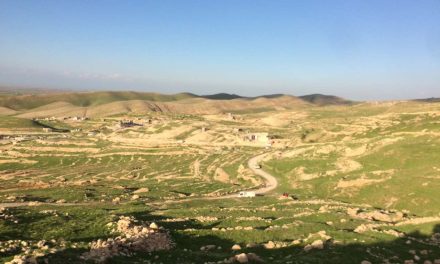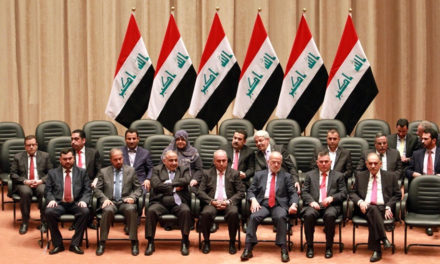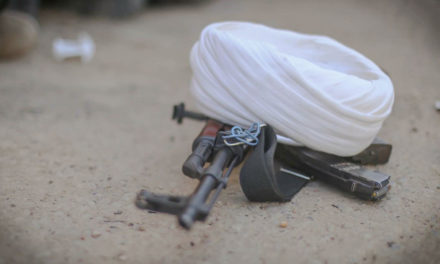(Photo: Sabah Arar/AFP)
Iraq’s Prime Minister Mustafa Al-Kadhimi announced a proposed date of June 6th, 2021 for the next elections. It was also an invitation for parties to begin the electoral race, which involves the formation of political alliances. Although the platform of some parties has shifted, it remains the same for others.
When it comes to parties from Baghdad and the South, the platforms are quite diverse as the dynamics from each election continue to change. In the 2018 elections, Shia coalitions like Saeroon, Fateh and Nasr all capitalized on the defeat of Da’ish, with their number of parliamentary seats gained falling in that order. Today, however, the biggest question in Baghdad is the financial crisis. In order to achieve economic reforms, Kadhimi’s government needs a strong political base, which it currently lacks. Accordingly, Ammar Al-Hakim formed a new bloc, Iraqiyoon, which is intended to provide a legislative base for the party-less prime minister. In addition, another political bloc was formed by Salah Al-Arbabi, called Waey (Awareness), which aims to provide an open platform for youth from different backgrounds, to address services and unemployment.
In the areas liberated from Da’ish, which are concentrated in North-Western Iraq, political platforms will remain focused on reconstruction. Because it has been over three years since the war was declared over, and many citizens find their cities still in ruin, only politicians with a demonstrated record of rebuilding will see any success through the ballot box. For instance, the Governor of Anbar, Ali Farhan Al-Dulaimi, has been proactive at seeking resources outside his province’s borders, unlike other governors who are complacent and rarely visit the capital to lobby for their constituents. In addition, a new alliance was created that aims to unite major Sunni factions. The main players in this new bloc seem to have one goal in common: to run the elections together in order to unseat Speaker Mohammed Al-Halboosi and end his growing influence.
As for the Kurdish political parties, their platform with regards to federal politics consistently demands greater rights for the Kurdish people, but through two different avenues. One strategy, historically pursued by the Patriotic Union of Kurdistan, involves strengthening ties with Baghdad. The second strategy, pursued by the Kurdistan Democratic Party, relies on secessionist threats. Other, smaller, Kurdish parties have taken stances that fall between this range of options.
Activists from the October Protest Movement are also expected to participate in the upcoming elections. It is yet unclear what form this participation will take. For example, it could produce a number of political parties or, alternatively, it could produce a number of independent candidates, unaffiliated with any party. Both scenarios are possible, but the size of participation will determine whether the protest movement will have evolved into a political movement that will try to take part of the political process or whether it will try to influence things from the outside.
Nevertheless, rumors are circulating about Kadhimi strengthening his relationship with different groups from the protest movement and potentially relying on them as his independent political base, regardless of his current alliances and relationships with other factions. Kadhimi, through one of his advisors, denied wanting to remain in power beyond the transitional period, though he has not denied the possibility of running for office. Furthermore, his highly orchestrated approach to politics reveals some political ambitions beyond the transitionary period.
This places Kadhimi among the key contenders for the next elections as most incumbents tend to do. However, his prioritization of preparations for the electoral campaign over everyday governance may place him at a disadvantage. For example, Iraq has the second highest number of COVID-19 infections in the region with no clear plan for tackling the pandemic. Financial disaster looms on the Iraqi horizon, and Kadhimi’s Deputy Prime Minister and Minister of Finance, Ali Allawi, struggled to convince Parliament to implement the tough measures required to prevent economic collapse. Iraq’s long-awaited White Paper is out, but none of Allawi’s sober and informed recommendations have been implemented on the ground despite him calling for urgent measures since he assumed office.
Former Prime Minister Haider Al-Abadi is another important contender in the next elections. His 2018 platform relied on his leadership during Iraq’s swift defeat of Da’ish and his balanced approach to foreign relationships, but he also steered the Iraqi economy away from financial ruin during the costly war against Da’ish. Abadi was able to prevent an economic meltdown, as well as to convince donors and international financial institutions to support Iraq. Despite the failures of his government, Abadi has out-performed previous and successive prime ministers in the economic agenda, which places him in an advantageous position.
By contrast, Adil Abd Al-Mahdi’s premiership took Iraq to the brink of financial ruin. He hired at least 250,000 new public employees, straining state coffers. Moreover, Abd Al-Mahdi’s inability to balance international relations led to a nearly ruinous face-off between Iran and the U.S. on Iraqi soil. Most importantly, his government’s violent handling of protestors has cost him and his allies credibility. This puts Fateh coalition, which was the strongest supporter of Abd Al-Mahdi, in a difficult position, as its base remains strong but its relevance is tied to its ability to forge alliances with other blocs.
Iraq’s political scene tends to be strongly reactionary to local, regional, and global shocks. Therefore, this rather stasis analysis reflects the inclinations of parties at a specific point in time – one in which protests have been occurring, regional tensions are high, and a global pandemic has ravaged economies and health systems. Any event which occurs before the next election or government formation can further complicate the political scene.

Muhammad Al-Waeli
Muhammad Al-Waeli is a Ph.D. candidate in management focusing on leadership, reform, and institutions in Iraq.










